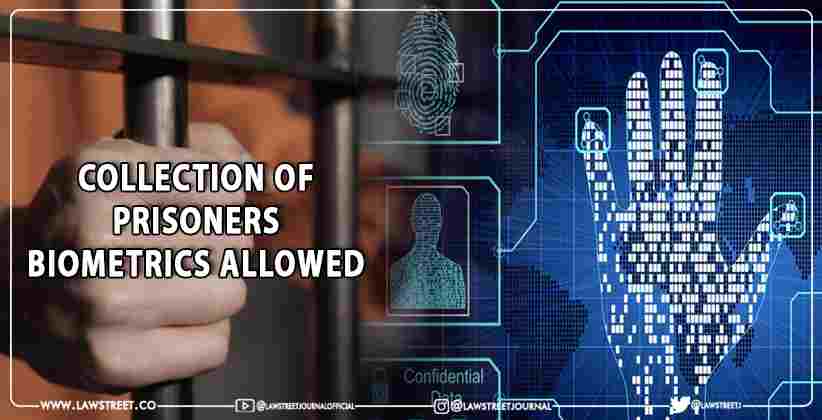The Lok Sabha on Monday (4 April 2022) passed the Criminal Procedure (Identification) Bill, 2022, by voice note. The Bill enables investigating officers to collect the biometric details of the prisoners. The Identification of Prisoners Act, 1920 is replaced in the Bill.
The Act authorises the collection of certain identifiable information about specified persons such as convicts for investigation of crime. The Act increases the scope of such details, and persons whose details can be taken. It authorises the National Crime Records Bureau to collect, store as well as preserve these details.
1)Details about the convicts and other persons: The Act allows the collection of photographs and specified details about convicts and other persons including finger impressions and footprint impressions. The Bill extends the list of details that can be collected. It will now include:
a) palm-print impressions,
b) iris and retina scans,
c) behavioural attributes such as signature and handwriting, and
d) other physical and biological samples such as blood, semen, hair samples, and
swabs and their analysis.
2)Persons whose details may be taken: According to the Act, the following persons may have to give photographs and specified details:
a) persons convicted of certain offences (such as offences punishable with a minimum of one year of rigorous imprisonment),
b) persons ordered to give security for good behaviour or maintaining peace under the Code of Criminal Procedure, 1973, and
c) persons arrested in connection with an offence punishable with at least one year of rigorous imprisonment. The Bill widens the ambit of such persons to include all convicts, arrested persons, as well as persons detained under any preventive detention law. Arrested persons will not be obliged to give their biological samples unless they have committed an offence against a woman or a child, or an offence punishable with a minimum of seven years of imprisonment.
3) The Retention of details: According to the Bill, it is essential that the details collected to be retained in digital or electronic form for 75 years from the date of collection. The record may be destroyed in case of persons who:
a) have not been previously convicted, and
b) are released without trial, discharged, or acquitted by the court, after exhausting all legal remedies. A Court or a Magistrate may direct the retention of details in case of such persons after recording reasons in writing.
4) The Resistance to giving of details: According to the Bill, resistance or refusal to give details will be considered as an offence under the Indian Penal Code, 1860. In case of such resistance or refusal, police officers or prison officers may collect details in the manner prescribed under Rules made by the state government or the central government.
5)Persons authorised to collect details: As per the Act, details may be collected by police officers who:
a) are in charge of a police station,
b) conduct investigation under the CrPC, or
c) are at least at the rank of a Sub-Inspector. The Bill authorizes the collection of details about specified persons by either a prison officer (not below the rank of Head Warder), or a police officer (in charge of a police station, or at least at the rank of a Head Constable). The point to be noted that a Head Constable is generally two ranks below a Sub-Inspector.
6)Powers of the Magistrate: In this Bill, a Magistrate may direct a person to give details for the purpose of an investigation or proceeding under the CrPC. Depending on certain factors (such as the area concerned), the Magistrate may be a Metropolitan Magistrate, a Judicial Magistrate of the first class, or an Executive Magistrate.
7)Role of the National Crime Records Bureau (NCRB): The Bill empowers National Crime Records Bureau to collect the details about the persons covered under the Bill from state governments, union territory administrations, or other law enforcement agencies. Other functions of the National Crime Records Bureau under the Bill will include:
a) storing and destroying the details about specified persons at the national level,
b) processing the details with relevant criminal records, and
c) disseminating the details to law enforcement agencies. Further, state governments and UT administrations may notify agencies to collect, preserve and share details about specified persons in their respective jurisdictions.
8)Rule-making power extended to the central government: The Act vested rule-making power only in the state government. The Bill extends this power to the central government as well. The central or state government may make rules on various matters, including:
a) the manner of collecting details, and
b) the manner of collection, storage, preservation, destruction, dissemination, and disposal of details by National Crime Records Bureau.






